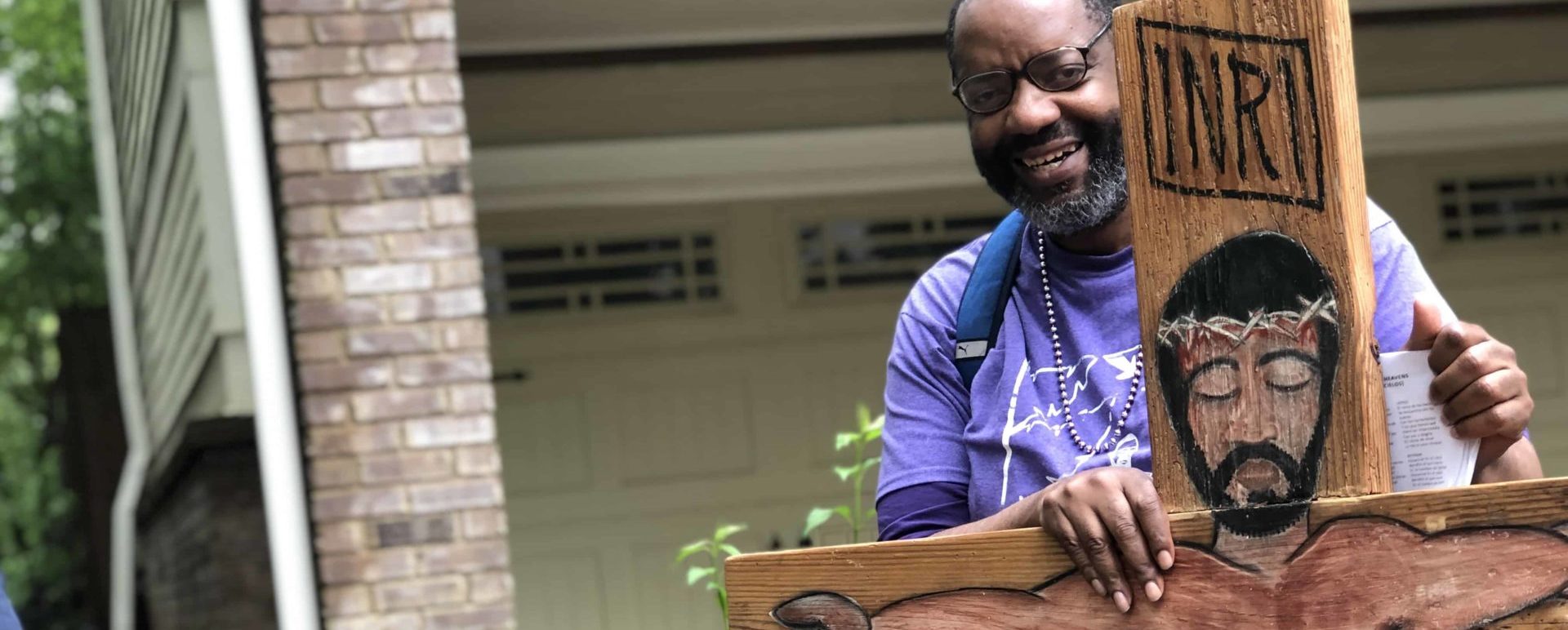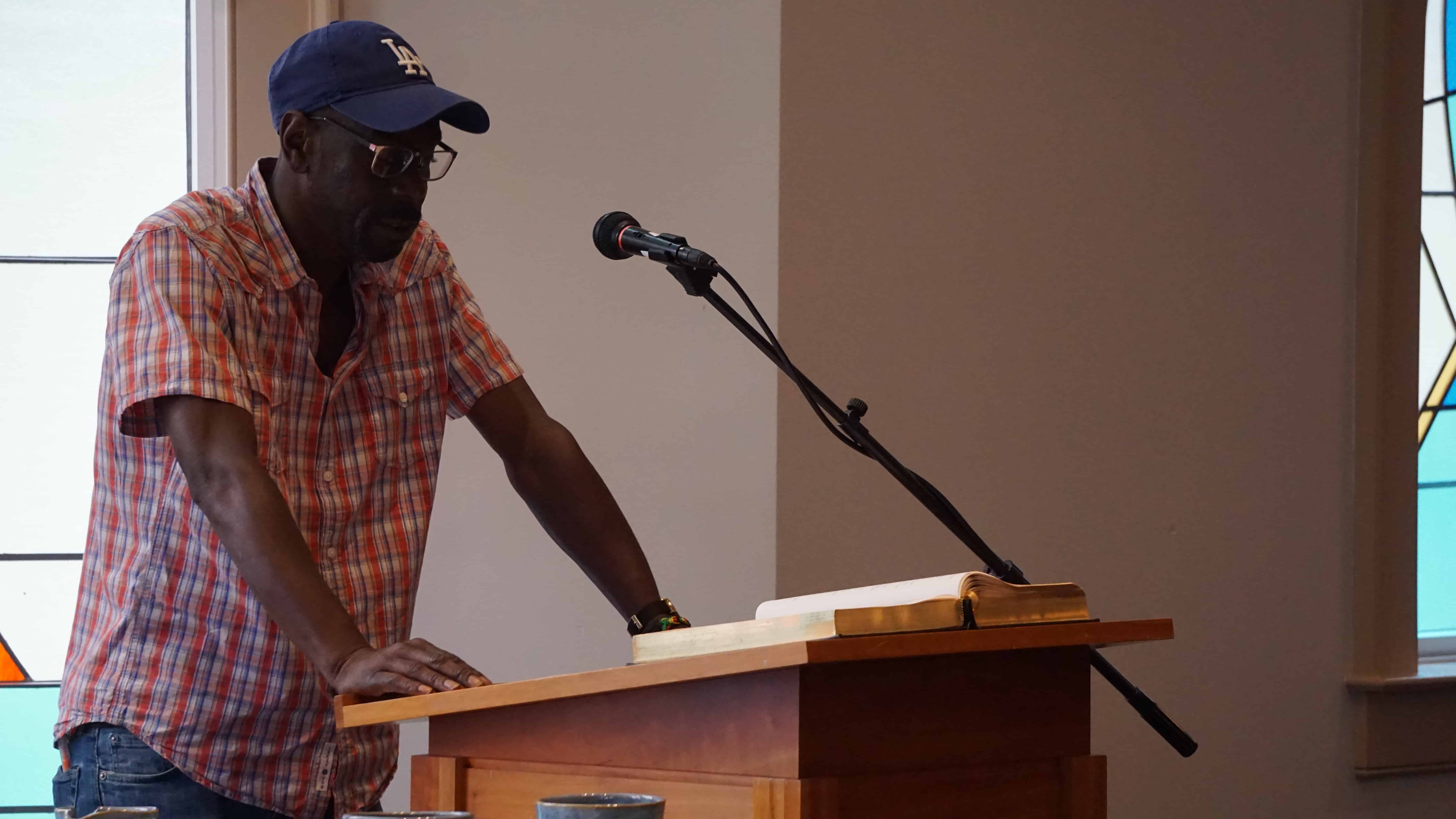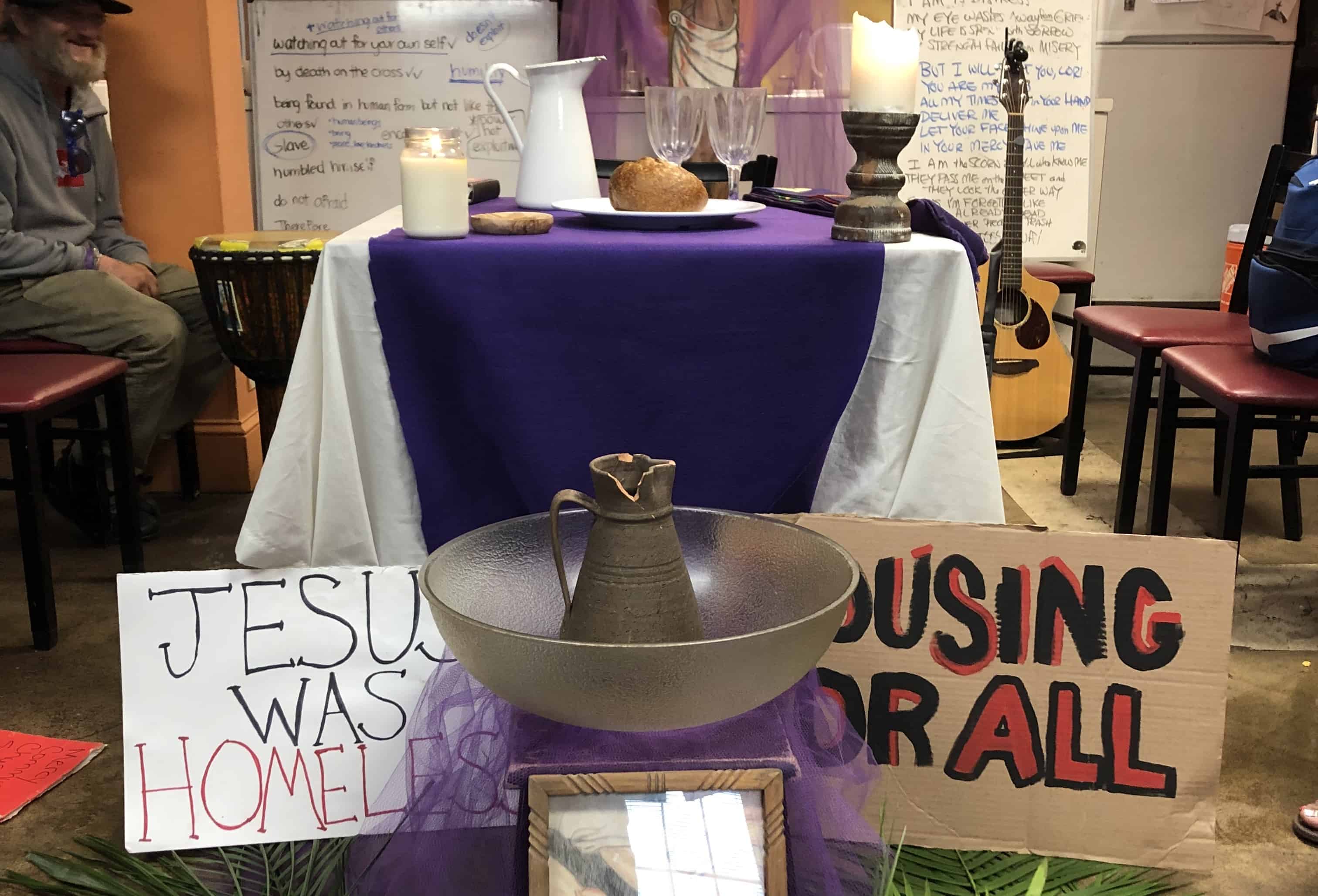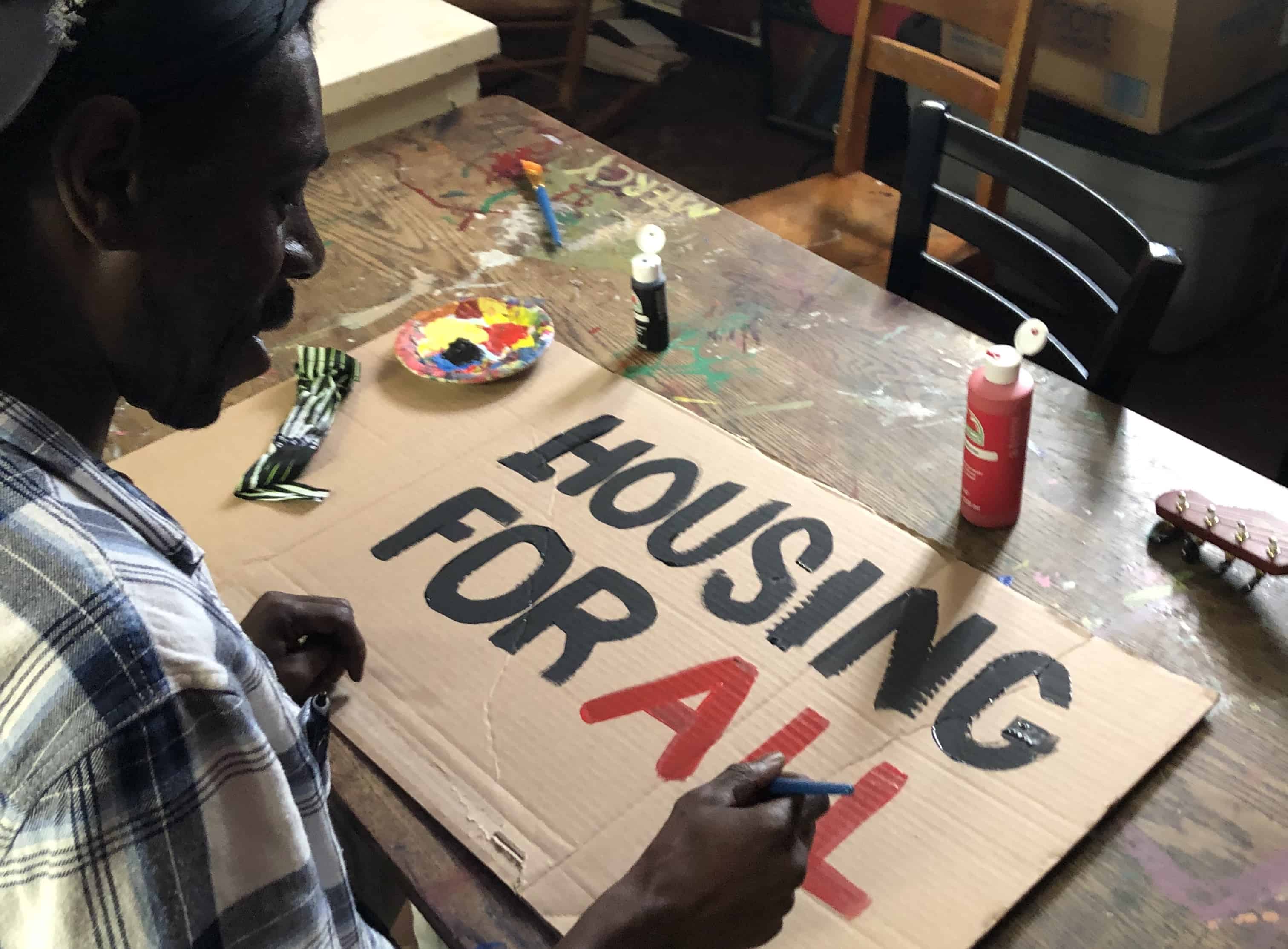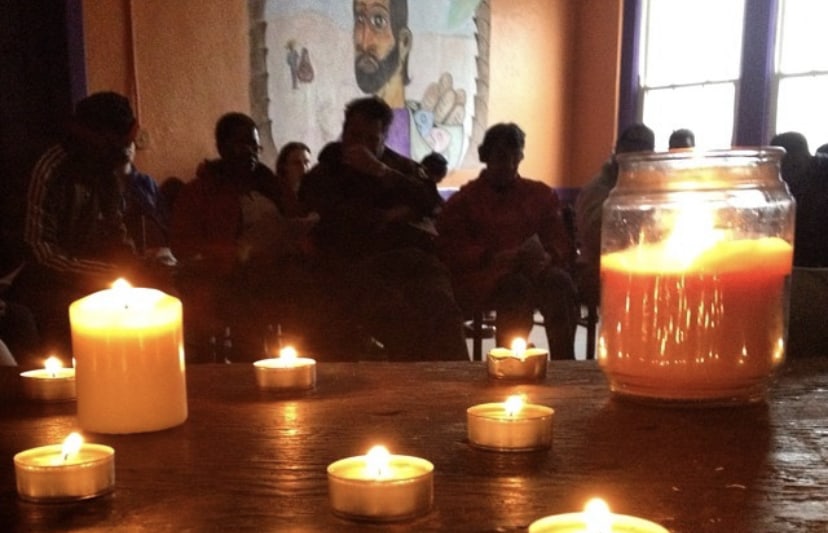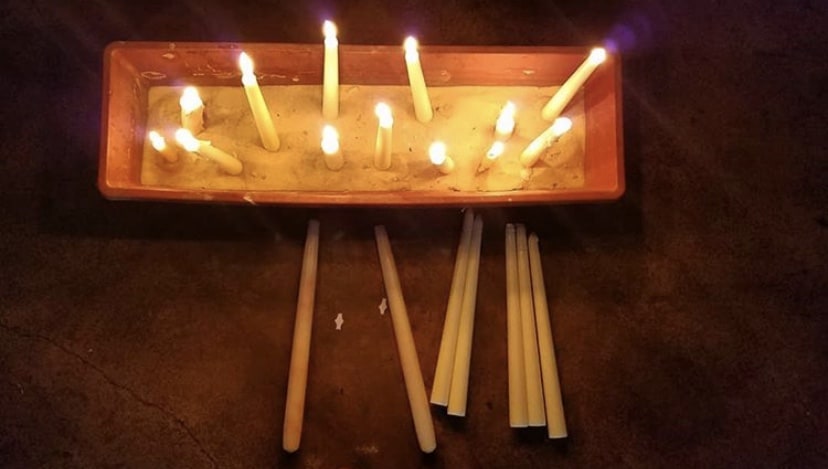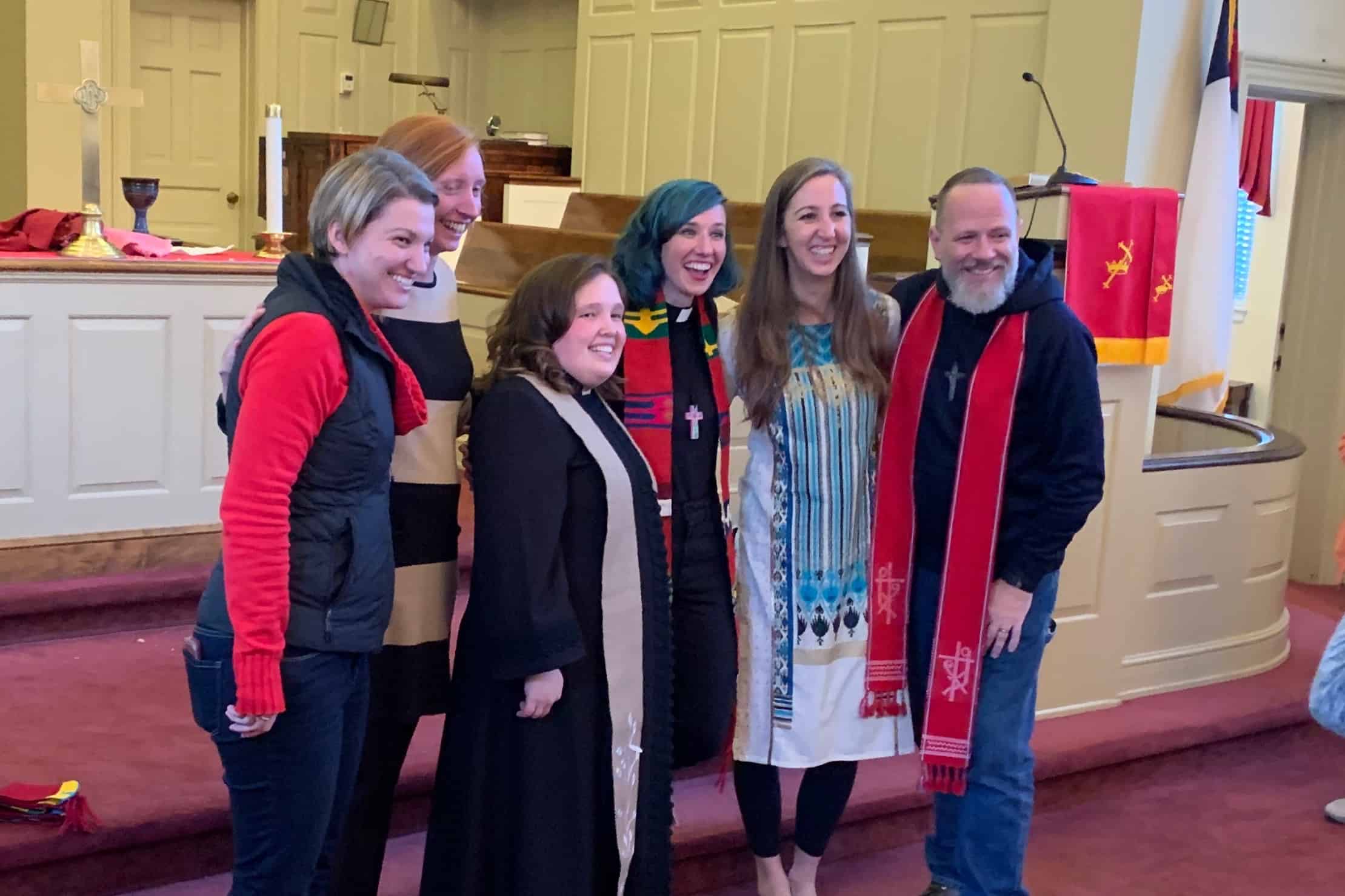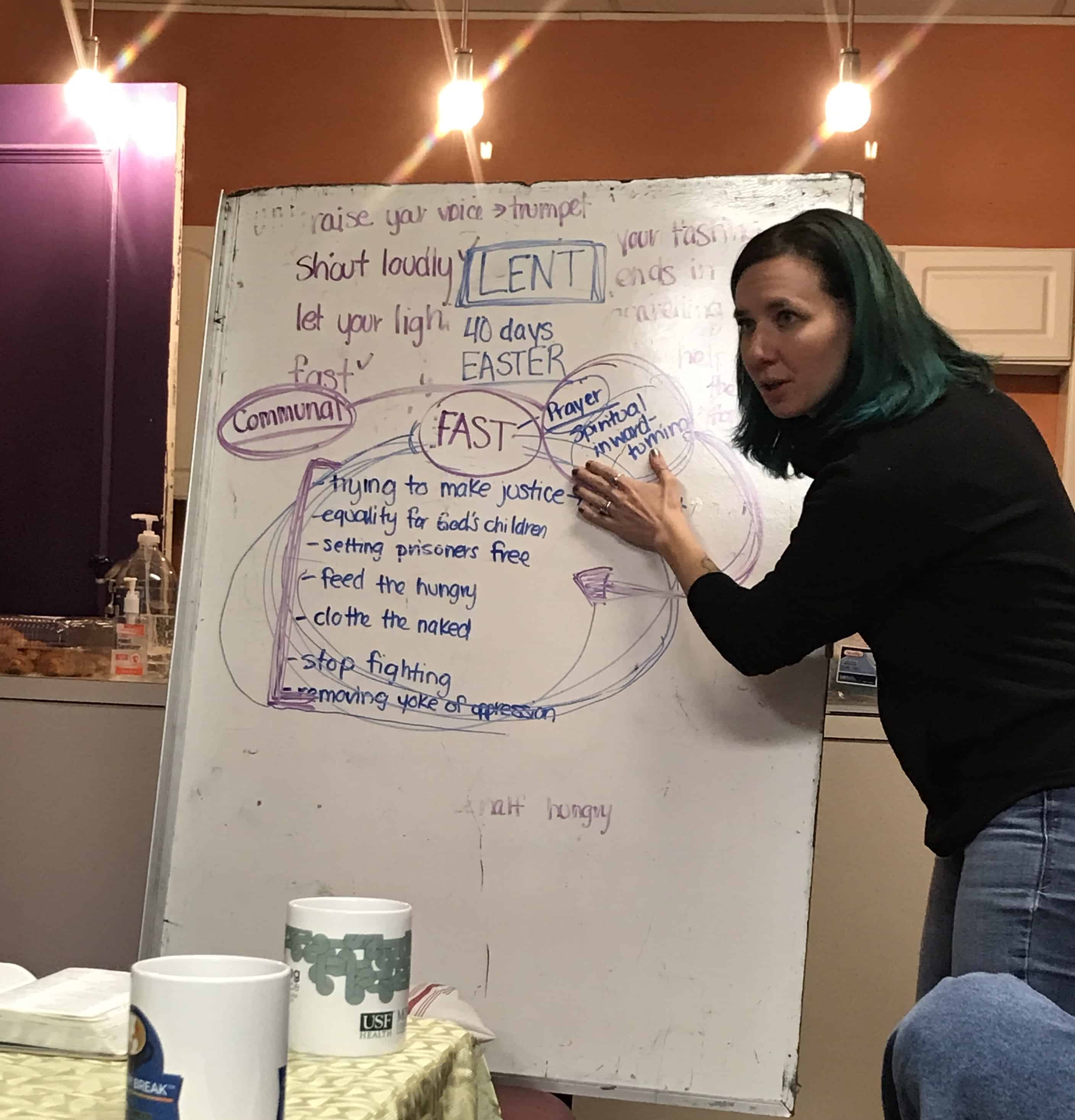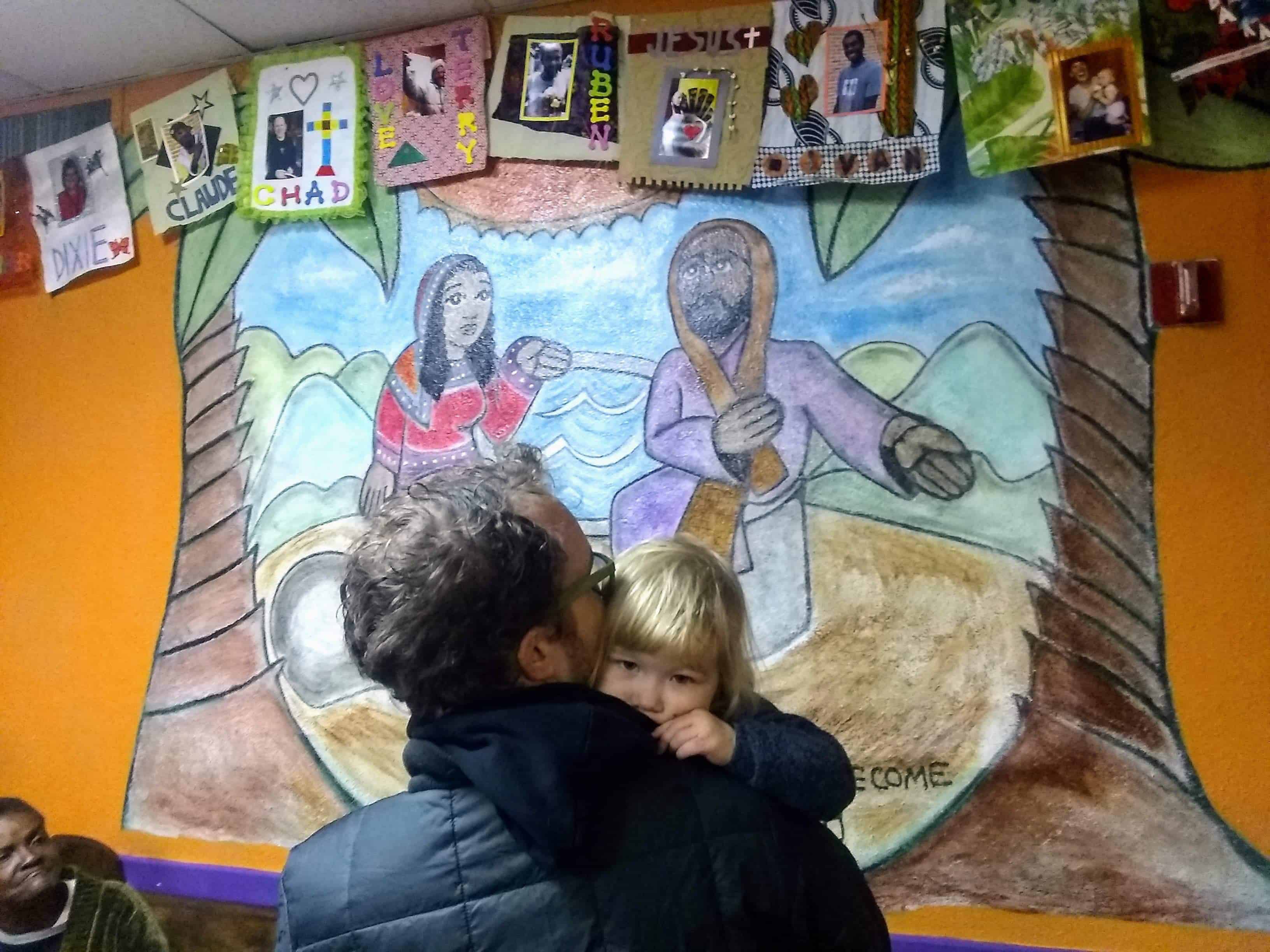By: Holly Reimer
Isaiah 52:13-53:12
Reflection—v. 3 ‘He was despised and rejected by others; a man of suffering and acquainted with infirmity’
This is probably one of my favorite days of Holy Week because it honors the suffering that Jesus experienced as well as the pain that we also experience. Pain and suffering are real. Jesus experienced the physical and emotional vulnerabilities associated with being human. His body was susceptible to thirst on the cross, and he felt the pain of sharp objects piercing his flesh. Jesus also experienced the hurt of being rejected by folks who never really saw him as valuable. His disciples fell asleep on him and denied him as he was being questioned by the authorities. He died the dehumanizing death of a criminal. We too feel alone, isolated, and rejected throughout our lives and in moments and seasons of suffering. In our pain we ask questions similar to the Pharisees and High Priests, ‘Why would you let this happen God?’ As this passage intimates, suffering isn’t simply a physical loss–it can be when we feel alone and isolated, it is when we’re struggling with the loss or changing of relationships, it can be a change in our health and the realization that we don’t have what we need in order to recover. It can be heartbreaking, and that is okay. Let us not feel like we must move too quickly from Good Friday to Easter Sunday, because the pain is real.
Prayer Lord, may we find space for suffering and companions willing to journey with us.
Tuesday, April 7th
By: Ivan Cooley
Isaiah 50:4-9a
Reflection—v. 7 ‘I know that I shall not be put to shame’
I want to be proactive about seeing my family. I chose to give up being around my family because I felt like I was bringing shame to them, and I felt like I wasn’t going to change anytime soon. I would like to say that my decision was some kind of noble decision, but it wasn’t. It was a decision that was made out of shame and guilt. Believe me, I’ve felt the ramifications of that. Even though in a sense you could say I gave up on them, they never gave up on me. Even in my worst times my father would write me letters and tell me ‘Son, you’re smart. You’re going to make it. We love you. The door’s always open.’ You see, that’s the way God is too. And if God hadn’t left his door open for me, then I wouldn’t be in the process of trying to see my parents again. I haven’t given up my parents. As much as it doesn’t look like it, I do love them. I don’t just want to satisfy my own needs and alleviate my own shame and guilt–it’s something that I want for them too. I want to see my father and mother smile. I want to reunite with my family, because, you see, that’s what we all are in this whole world–one big family. It’s my wish and my prayer that everybody can reunite with their loved ones. God did the ultimate–God looked at humankind as his family. Even when we stray away, and maybe not pray or even think about God for a little while, let us not forget that we are a member of God’s family.
Prayer: God our parent, when we feel alone, help us to remember we are yours.
Monday, April 6th
By: Ivan Cooley
Matthew 21:1-11
Reflection—v. 9 ‘Blessed is the one who comes in the name of the Lord.’
When the people saw the king coming, they spread cloaks on the ground and broke off palm branches and laid them on the ground. They also waved the palm branches in the air to symbolize victory. The people were greeting the king in homage and shouted Hosanna. Hosanna is another way of saying savior, rescue me, or save me. On the king’s advent into town there was bedlam. The whole city was asking “who is this?” This is the prophet Jesus from Nazareth in Galilee. That my friends, is the only humanitarian king I can think of. He lived a sinless life. He gave his sinless, blemish free life, so that we can be forgiven. He lived his life with love for humankind. A living, breathing human example of what we should strive for in our spiritual lives. I can tell people a king died so that I can live. In this way he conquered sin. He rose from the dead conquering sine and death. He demanded nothing and compassionately asked us to remember, follow, and believe in him. I certainly do, unquestionably. I wasn’t alarmed because the youth pastors and the youth group knew the same thing I knew. He is the only king worthy to be worshiped in prayer, and it sure is not a human one unless his name is Jesus Christ for he is truly the King of Kings—he has the victory over the enemies of our soul. He wants to see us all flourish like a palm tree in victory.
Prayer Hosanna, Blessed is the one who comes in the name of the Lord. Hosanna in the highest!
Palm Sunday, April 5th
By: Ivan Cooley
Matthew 21:1-11
Reflection—v. 5 ‘Look, your king is coming to you, humble’
A youth group attended Mercy one day. I was asked to pray at the conclusion of the phenomenal time we had spent together. I ended the prayer with the words “All praise and glory and honor to our King” then I hesitated. In two seconds of hesitation, closed eyes opened, bowed heads raised, trusting eyes became dubious gazes. When I clarified myself by naming Jesus Christ, happiness and good cheer were restored. I found no reason to be alarmed. In all my discussions concerning emperors and kings, about the only thing that can be said that’s satisfactory about them is that some may have been refined in the art of war. In other words, they are excellent at disturbing the peace and balance of humankind through violence and oppression. Real quick! Name one czar, emperor, or king who is remembered for being a humanitarian. I can name only one. He lived roughly two thousand years ago. He traveled all through the land preparing people for life not death. He preached, he taught, he blessed, he healed, he fed, and he clothed- -and these acts were considered miracles. The people of Israel were eagerly awaiting their king. The one who would free them from tyranny and oppression from the Roman Empire. He told two of his lieutenants to go into the village and find him a donkey. The donkey symbolizes serving, suffering, peace, and humility. The king lived his life serving and suffering with the peace and humility of a man who knew his destiny. Befitting a king, the lieutenants covered the donkey with their cloaks. When the King arrived in town, prophecy was fulfilled. “Look, your king is coming to you humble and mounted on a donkey.”
Saturday, April 4th
By: James King
Psalm 130
Reflection—v.1 ‘out of the depth I cry to you, O Lord’
In Psalm 130 it sounds like the people are asking for forgiveness for all the wrong-doings that they’ve done, and they’re waiting on the Lord to answer their prayer. The people have been living their life in sin, and now it’s catching up with them. Now they’re asking the Lord for forgiveness. They’re hoping and they’re looking for him, and they’re just waiting and waiting for the Lord to answer their prayer because they want to change the way they live. That is what the psalmist is saying: ‘Lord, forgive me for all my sins, and help me to change the way I’m living, and give me a new beginning. I put my hope in you, and I’ll keep my hope in you until you answer my prayers.’ Only the Lord can do that. Sometimes I feel like this too. I feel this way all the time. Sometimes it weighs heavy on me. Sometimes I think about it at night when I’m trying to sleep, and it’ll all be on my mind. ‘Why do I live like this? I don’t have to live like this. Why don’t I just change the way I live?’ It seems like I’m helpless. Sometimes it weighs heavy on me and it hurts. The writer of psalm 130 is like me, asking for forgiveness, asking God to take me from all of this madness and change the way I live.
Prayer Lord, forgive us for all our sins, and help us to change the ways we’re living, and give us new beginnings. We put our hope in you, and we’ll keep our hope in you until you answer our prayers.
Tuesday, March 31
By: Maggie Leonard
Ezekiel 37:1-14
Reflection-v. 14 “I will plant you on fertile land, and you will know that I am the Lord’
As I think about this verse in the Lenten context, I am reminded of a poem by my favorite poet, Hafiz. Daniel Ladinsky translates it from Persian as follows – ‘What plant can grow if you keep lifting it from the soil? Let your roots expand unchecked into a forest, a river, a song, or some verse you hold tenderly. You need to become quiet for this, as roots work in silence beneath the earth’s silhouettes. Draw from souls all you ever could want above, below, and to the side, and within us, within us just love.’ Having the gifts of nutrients available isn’t enough, we have to do our part to receive them. This call to silence is probably the most difficult part for many of us. Last year for one of my classes, I had to devise an experiment on myself to change a habit. I decided that I wanted to walk my dog more often. I failed miserably. I realized that I failed because while I wanted to change my habit, I had not really done the work of changing my attitude and heart. Post-experiment, I worked to make these deeper changes and my dog walking habits did indeed shift as well. For many of us, we will have to actively seek to change our attitudes about taking time for silence – to really prioritize that time in our hearts. It is there that we will grow in depth, nurtured by God’s gifts of love – drawing it in from every direction. It’s in receiving this goodness that we truly start to understand and know who God is.
Prayer God of life, nurture us that we may ever grow deeper roots in love.
Sunday, March 29
By: Maggie Leonard
Ezekiel 37:1-14
Reflection—v. 9 ‘dead bodies’
Have you ever found yourself so busy that you forgot to eat? I am not one to forget to eat often–but every now and then, the momentum will carry me and I won’t know what time it is, much less that I haven’t eaten. Once I finally do slow down, or look at a clock, exhaustion and hunger hit. I’m tired, dead tired. Through the scriptures featured for this week, there is a theme of death. Real, full, smelly, dry death. I wonder if Ezekiel’s valley of bones knew that they weren’t living, even when the sinews and flesh appeared. Or if the Romans knew that selfishness was killing them and separating them from God. Or Lazarus? That one’s a doozy to begin with, I can’t even imagine what he was thinking. What seems clear, is that without God, without the Spirit, we aren’t truly living. A friend of mine recently took Benedictine vows. He lives at a little house of prayer in middle Georgia where the weary can find respite, prayer, and reflection on silent retreat. As we celebrated his decision, a fellow well-wisher reflected on the space that he, and his companions, hold for others. It is because they live a slow, prayer-filled, countercultural life that others can enter more deeply into the presence of God. Visitors take up the invitation to ‘be’ with God and are given the time and space to reset and reconnect with God. This Lenten season, may we have the awareness to see how weary we have become and have the courage to allow God to bring us to new life.
Prayer Living God, give us rest, give us nourishment, and bring us new life.
Thursday, March 26
By: Brittany Fiscus-van Rossum
John 9:1-41
Reflection—v. 34 ‘You were born entirely in sins… are you trying to teach us?’
Before they drive him out of the synagogue, the leaders balk at the audacity of the beggar-turned-prophet who outwits their persistent questions and offers to elucidate instead. They are trying to reason, question, logic-out, or even theologize what has happened to this once over-looked poor beggar who, along with the man who healed him, no longer fit into their limited paradigm of how God works. As this clever evangelist and a busy-at-work Jesus become progressively disruptive and unignorable, the leaders become increasingly unable (and perhaps unwilling) to accept and perceive the messy beauty of what’s transpired—that God-with-us wasn’t afraid to get down in the dirt and empower this prophet who can plainly speak for himself. The leaders bring up the man’s sinfulness, a convenient reason to discredit his voice and silence his experience. They grasp for any reason not to hear wisdom from a poor man they not-so-secretly wish had stayed in his lane. If one spends any time with our sacred text, it should be unsurprising that God’s voice so often speaks from the margins–from the mouths of the poor, the homeless, the disabled, and the neglected. Yet, do we give credence to these voices, or do we, like the grasping synagogue leaders, question what they could have to teach us? God is still busy out there on those streets. May we be open enough not to miss God’s handiwork in the stories and experiences of others.
Prayer God at work, help us to listen and to be willing to learn, especially from those we don’t expect to have something to teach us.
Psalm 121
By: Chad Hyatt
Reflection—v. 3 ‘the one who keeps you will not slumber’
The pastor didn’t sleep much that night. She was too alert to rest as she kept ‘watch o’er her flock,’ not unlike certain shepherds on a Christmas night long ago. But the sweet song of angels didn’t reward her vigilance. Instead, a chorus of antiphonal snoring and the persistent percussion of footsteps en route to the restroom announced the good news on this evening. For those nocturnal sounds could mean only one thing: her sleepless night had helped create the space for forty other souls to rest warm and safe—for one winter night at least. This psalm describes in tender detail the attentive care of our pastoral God, and hers is the image I call to mind. God isn’t asleep on the job. She’s watching over us, whether we’re sound asleep or wide awake, coming in or just about to head out. Our song, ‘Jesus Is a Sanctuary,’ explores this theme of a God who is the faithful refuge of her people. Singing it, we remind ourselves that God is indeed our our shelter and sanctuary. But we also remind ourselves that we are called to provide space for one another that is both sacred and safe. Jesus is indeed a sanctuary, but we are his body. As we ponder penance this Lent, let us repent of doors that are closed and sanctuaries that sit empty on cold nights, of pews and carpet that are unstained by human need, of policies and liability concerns that take the place of moral discernment and compassion. And let us give thanks, too, for churches like our partners’ that open their doors and for so many, like that pastor and countless other volunteers from many churches, who hear the call of the God who tenderly watches over her people, by day and by night.
Prayer God who never rests in your constant care for us, help us to care for one another always.
Monday, March 23rd
By: Brittany Fiscus-van Rossum
1 Samuel 16:1-13
Reflection—v. 7 ‘do not look at his appearance’
This story is pretty classic disrupt-the-norm-defy-expectations God. Samuel is seeking the next king of Israel, but surprise! it’s not any of Jesse’s older, stronger, more qualified progenies, but the uninvited youngest of the bunch left to babysit the sheep! God’s choice is confoundingly not-obvious, but we’re told it is because God does not see as we appearance-obsessed mortals do. God understands the rich intricacies of a human heart for all its worth and value and judges from within. How odd then, isn’t it, that as followers of this heart-perceiving God who seeks the depths and complexities within human beings, we are so often satisfied with our face-value judgments of one another. Throughout our sacred texts God is choosing to work through, speak through, and lead through the unexpected, the marginalized, and the overlooked. We make all sorts of judgments about who can lead or serve, about whose voice has value, about who is in and who is out. To succeed or lead you must have the proper credentials and enough education. You can’t be too young, but you shouldn’t be too old either. You must dress a certain way and talk a certain way. It helps if you’re a certain gender, race, and sexual orientation too. Yet God continuously subverts our expectations and imagined regulations. Quite often God calls who we may least expect. Let us not be too hung up on appearances to miss when God is up to something new.
Prayer O God, surprise us, and let us be open-hearted enough to perceive the many people you work through every day.

